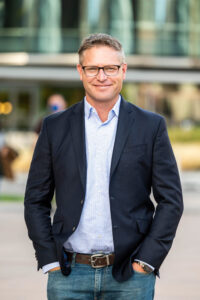Kintsugi, the art of mending broken pottery, was born in 16th century Japan. After an attendant of the warlord Hideyoshi clumsily dropped a precious piece of teaware, a tea master named Rikyu interposed. Rikyu first sung a poem which softened Hideyoshi’s heart, then artfully repaired the broken vessel using gold-gilded lacquer. Beauty out of brokenness. A mending of the old. Creating something new that is even more valuable than what came before.
Kintsugi is a metaphor, perhaps without equal, for God’s work in our lives and in the world. The horizon for this divine work is the New Creation, when God will make all things new. As John explains in Revelation, God “will wipe every tear from their eyes. Death will be no more; mourning and crying and pain will be no more, for the first things have passed away” (Rev. 21.4). This culmination of the Second Advent is founded on the First, in which God fully entered into the world’s brokenness through Jesus’ life, death, and resurrection. God is a mender; what is shattered is not simply repaired, but is made new.
If this act of mending is God’s work in the world, then it is also ours. The intersection of faith and work begins and ends with prayer, and Kintsugi provides us with a way to pray about our work. Here are a few ways to engage in this type of prayer.
We are broken.
Part of our calling as Christians is to pay attention to the mending God is doing in us. The intersection of our faith with our work is crucial, first and foremost, because our vocation is a studio where we can attend to our own brokenness. To love our work is part of the joy of a vocation. In this loving, we must know not only that we love a broken thing (the church, the healthcare system, the justice system, the educational system, etc.) but that we have a broken love for a broken thing. As theologian Douglas John Hall explains, “The theology of the cross can never be a brilliant statement about the brokenness of life; it has to be a broken statement about life’s brokenness, because it participates in what it seeks to describe.”
As a pastor (and this is equally true in other fields), I have learned that the mending God wants to do through me is always tied to the mending God wants to do in me. I can only yield to this work in prayer. It is difficult work, for I must open myself up to the broken vessel that is my life: my insecurities, my weakness, the way I have hurt others. In prayer, I must first pick up these shards, offering them to the divine Kintsugi Master.
Pray About What is Central
Kintsugi provides a framework for praying about what is central to whatever work we have been called. Imagine the field to which you have been called as a soup bowl that has been passed down for generations; it falls to the floor and shatters. You pick up the pieces, and arrange them to fit back together, and then bond them with gold-gilded adhesive. This is your work. Praying about your work in this way gives you a lens for how God is using you, both in the daily tasks and in the grand sweep of your calling.
Pray About What is Peripheral
Often, though, God’s mending work occurs on the periphery of our vocations. Yes, the surgeon operates and the teacher teaches and the pastor shepherds. But the surgeon who prays about her work may change her practice’s posture toward Medicaid patients because of her prayer. She sees something broken in the periphery that others have ignored. The teacher may notice how the default curriculum privileges certain voices and call his students together to address what is lacking. The pastor may volunteer as a police chaplain, irking church members, but gaining perspective and influence in her community. Brokenness is all around us; the mending to which God calls us may not be on our formal job descriptions.
I recently broke a handmade salad bowl that we’ve had for about a decade. This piece of pottery was no heirloom, but I swore nonetheless out of habit. And then, part of me rejoiced. I picked up the pieces, and stowed them away in the closet, waiting for glue, and gold dust, and the skill to mend.
Brokenness is never final. What is more, it can be the cause of deep joy, for what is made new surpasses what has been shattered. This is God’s work in the world; let it be ours as well.
Editor’s note: For an in-depth exploration of the kintsugi art form, see Makoto Fujimura’s excellent book, Art and Faith: A Theology of Making.

